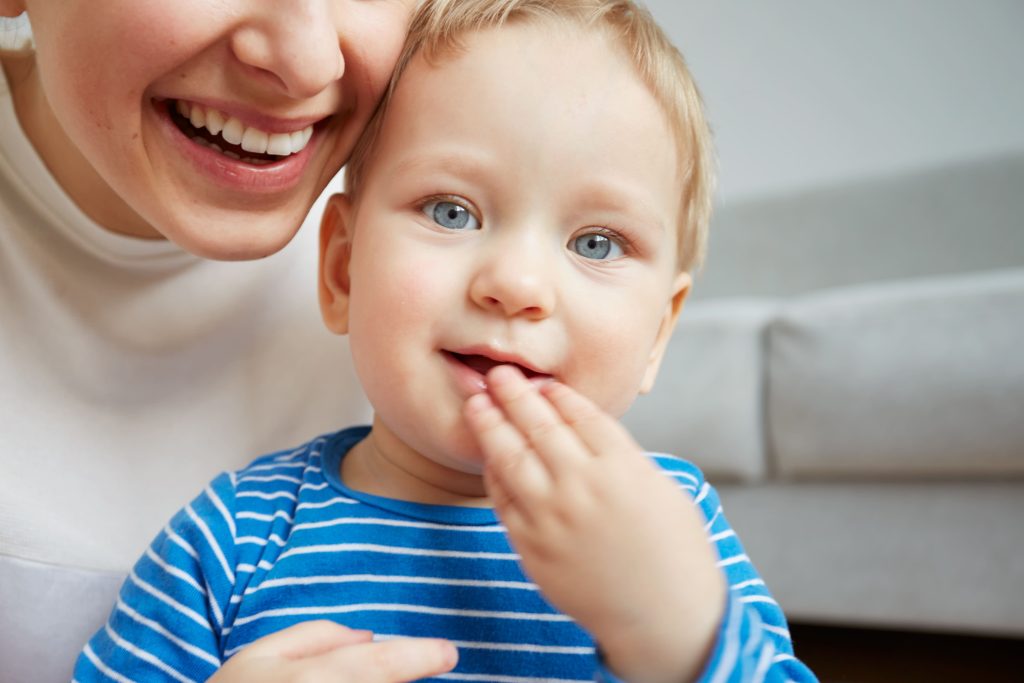Teething is one of the biggest milestones in your baby’s life — and for many parents, it also brings with it just as many questions as it does adorable smiles! We know what you’re going through, which is why we answer some of the most frequently asked questions parents have regarding teething and teething dental care for babies.
Can teething cause fever in babies?
Many people believe teething can cause fever, but teething rarely causes a real fever. Some babies experience a slight increase in temperature (called a low-grade fever), but a temperature over 38°C (100.4°F) is more likely to be caused by something else – for example, a minor infection.
Teething may make a baby more uncomfortable and irritable and this may make any other symptoms more noticeable. If your baby’s temperature remains high or they seem unusually unwell, contact your GP or paediatrician for advice.
When do babies start teething?
Most babies start teething at around 6 months of age, although some may begin as early as 4 months or as late as 12 months – each baby is unique. The lower front teeth (central incisors) usually erupt first, followed by the upper front teeth a few weeks later. By the time they are three, most children will have a full set of 20 primary (baby) teeth.
What are the worst symptoms of teething?
Teething symptoms can vary widely, but the most common ones include:
- Sore or swollen gums
- Excessive drooling
- Irritability or fussiness
- Difficulty sleeping
- Chewing on toys or fingers
- Loss of appetite
Some babies may also have slightly red gums or a rash around the mouth from drooling. The “worst” symptom is usually gum discomfort, and can make your baby fussy. Sore gums can be soothed by rubbing with a clean, chilled teething ring or with a clean finger. Do not use teething gels with numbing agents unless your dentist or doctor recommends them.
When should a baby go to the dentist?
According to dental experts, you should take your baby to the dentist by their first birthday or within six months of their first tooth erupting — whichever happens first.
The dentist will ensure your baby’s teeth are developing as they should and discuss teething care, feeding, and how to brush your baby’s teeth safely. Your child will also get used to dentist visits from a young age.
Does my baby need to see a dentist when teething?
Yes — your dentist can still offer help and reassurance even during the teething stage. Your dentist can examine your child to ensure the teeth are erupting normally, offer tips for soothing sore gums, and answer your questions about fluoride use or appropriate brushing methods for your baby’s age. By taking your child to the dentist regularly from infancy, you can help ensure a lifetime of good oral health, and your child will be more at ease with dental care as he or she gets older.
Teething can be a difficult time for both you and your baby, but it’s a natural process that leads to a healthy smile. Most symptoms are minor and can be easily managed at home. Regular dental visits will also help ensure that your baby’s teeth and gums are healthy from the very beginning.
If your baby is teething, or if you just want to ask a question or two, give your local dental clinic a call. Your dentist is here to help every step of the way.

